When you start an eating plan, you may have certain lifestyle goals in mind. These outcomes could range from trimming down your waistline, all the way to a full-body transformation. While many dieters focus on changing aspects of their outer appearance, they may forget how their eating patterns affect their brains. This important organ should get as much attention as your heart, lungs, or any other vital organ. According to The World Federation of Neurology, brain health affects a person's ability to communicate, make proper decisions, and live a healthy lifestyle. A number of factors contribute to this organ's health, including sleep patterns, exercise, and diet.
Keeping track of what goes into your body has a major impact on your cognitive health. If you eat the wrong meals, you could end up suffering neural inflammation, leading to memory decline and other health problems down the road. While this condition sounds terrifying, you can avoid any unwanted symptoms by monitoring what your diet consists of. With the help of a select group of experts, we put together the definitive guide of the worst eating habits for your brain.
While this guide gives you a full layout of what not to do, make sure to check out Popular Foods That May Improve Brain Health, Says Dietitian to learn about which ingredients you should add into your diet for the best brain benefits.
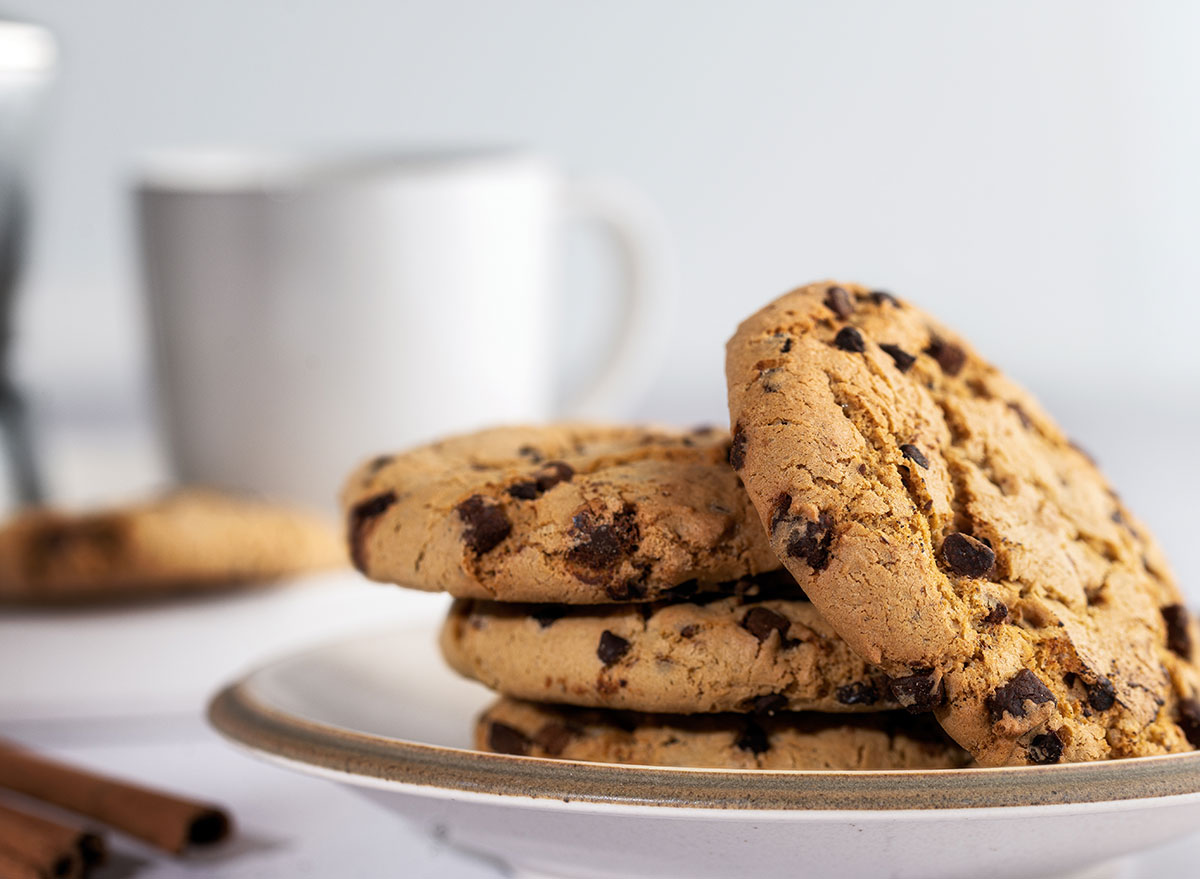
When you need your brain working at 100%, make sure to avoid overindulging in sugar.
"Your brain's function strongly depends on your blood sugar levels, since glucose is normally the main fuel for your brain," says Dr. Dimitar Marinov, MD. "While too much sugar does not harm your brain directly, it invokes the release of high levels of insulin. Insulin affects the access of different amino acids to your brain and more specifically if block the transport of most amino acids except tryptophan."
"The latter passes the blood-brain barrier and gets transformed into serotonin and melatonin—the sleep hormone," Dr. Marinov continues. "This is why overfeeding on sugary foods can literally put you in a carb coma."
RELATED: Get even more healthy tips straight to your inbox by signing up for our newsletter.
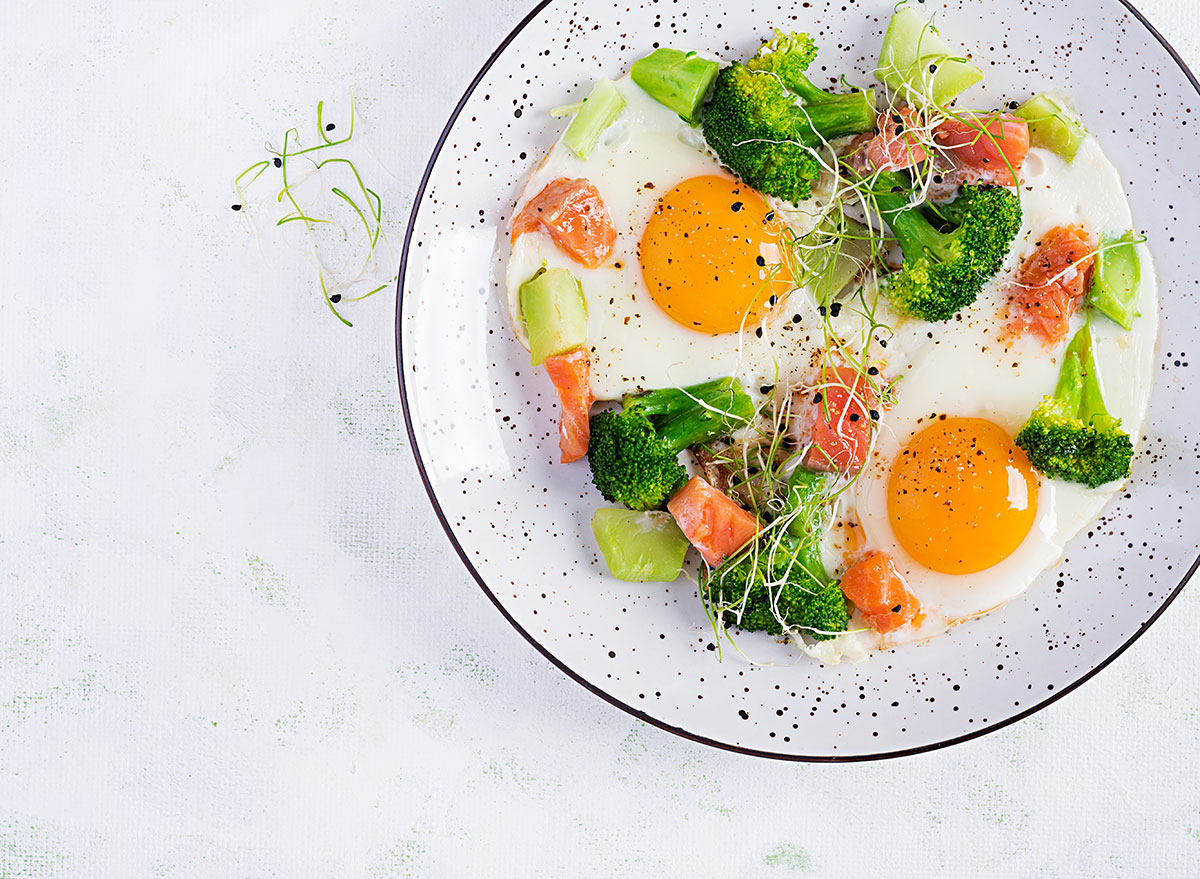
You might assume that cutting all sugar out of your diet could do wonders for your neurological health, but don't make these assumptions too quickly.
"Glucose is not the only fuel of the brain," says Dr. Marinov. "It can also burn ketones. Although most keto-fans will swear that burning ketones is more optimal and improves brain function, the adaptation does not happen in a day. Unless your body is well-adapted to ketosis, quitting carbs may lead to unstable blood sugar levels and even episodes of hypoglycemia. This can lead to brain fog, confusion, and even a brief loss of consciousness."
Here's why These 5 Serious Diseases May Be Caused by the Keto Diet, New Study Says.
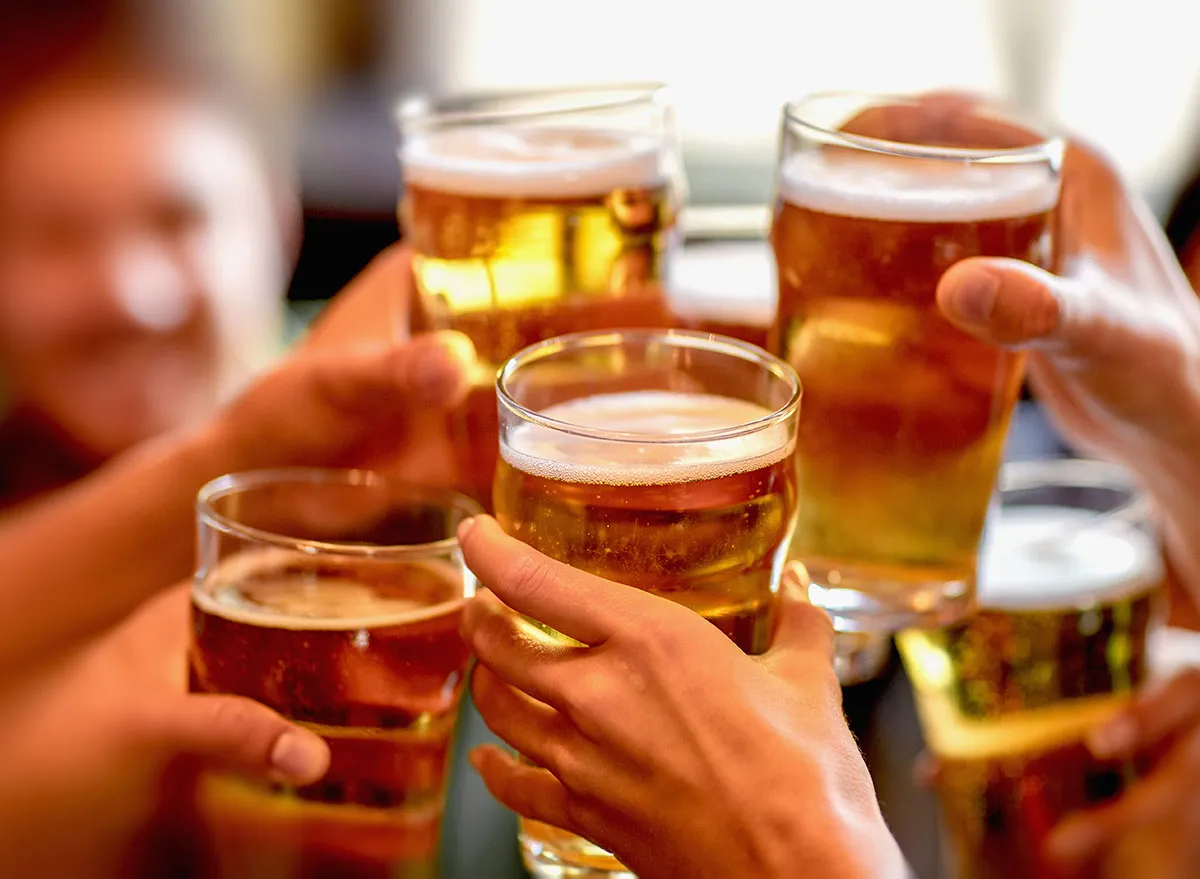
Alcohol can take its toll on your body, and it particularly affects your brain.
"Drinking more than the recommended 1 to 2 drinks per day can affect your brain's ability to function at its best," says Melissa Mitri, RD for Wellness Verge. "Too much alcohol over time can affect the levels of neurotransmitters in your body, which are chemical messengers that help your brain cells to communicate."
"Even partaking in an occasional night of binge drinking can result in memory loss and damage. If you choose to drink, stick to one drink which equates to 5 ounces of wine, 12 ounces of beer, or 1.5 ounces of distilled liquor," she says.
When you want to hit the town but don't know what to drink, make sure to consult 20 Tips for Choosing Healthy Alcoholic Drinks

"The mighty brain uses 20% of the body's energy and it is the first thing that suffers when energy from food is limited," says Liz Wyosnick, MS, RDN, and owner of Equilibriyum. "When you skip meals, the body goes into a compensatory mode to try to create glucose for the brain and to balance blood sugar to a safe, equilibrium level. This may manifest in the body as low energy, agitation, and the inability to concentrate or focus. For brain health, it is helpful to eat breakfast within 1 hour of waking up, and then eat a balanced meal every 3 to 4 hours within your day."
Here's The #1 Best Diet For Your Brain, Says Dietitian.

If you love taking your lunch at your desk while you work, you might end up tricking your brain into overeating.
"Performing tasks while eating means that you lose awareness and sensation of the food in front of you," Wyosnick says. "Multitasking during meals can mean that you lose touch with your fullness signaling and your brain's ability to register satiety and satisfaction from the meal is impaired. Distracted eating can mean that you leave the meal unsatisfied and therefore snack more later or continue to graze which can have negative blood sugar consequences and impact brain focus."
Here are the Eating Habits to Avoid If You Sit All Day, Say Dietitians.
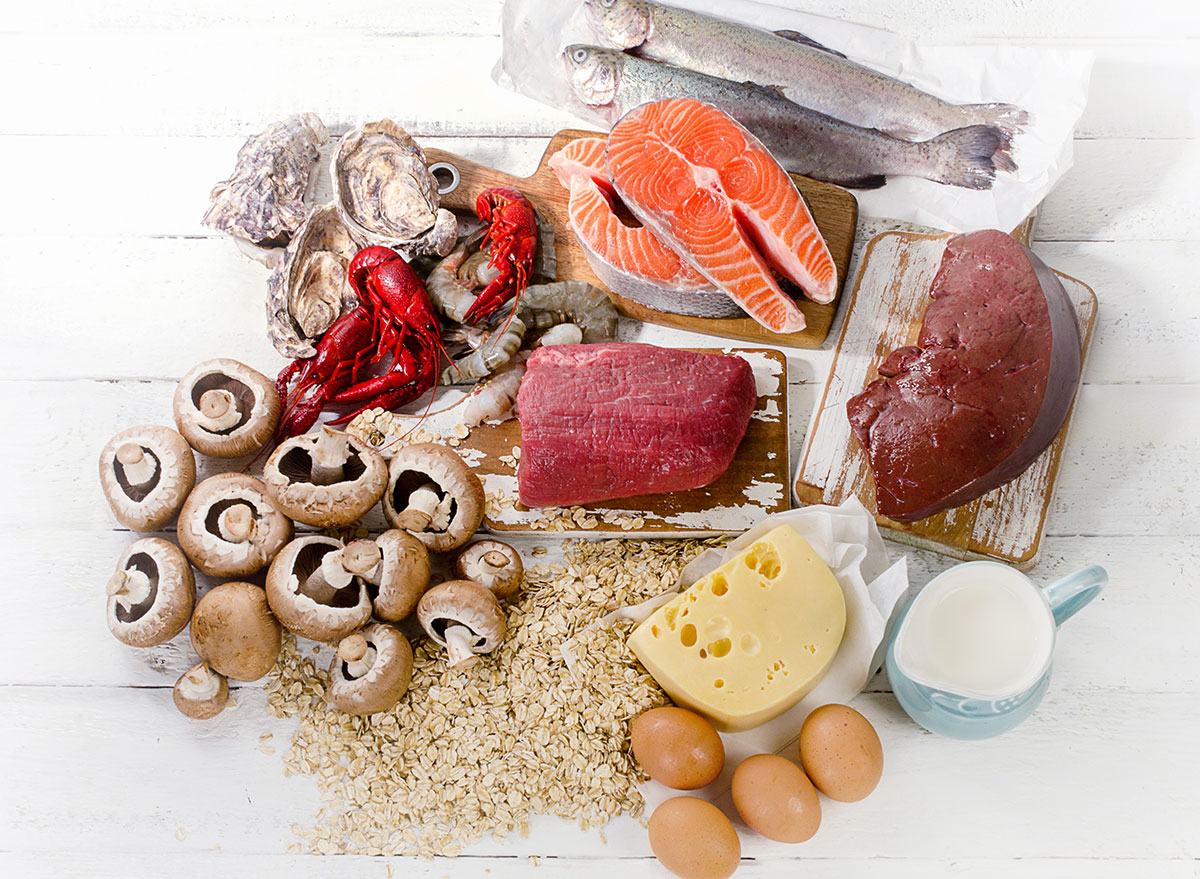
"Vitamin B12 protects nerve cells and helps produce neurotransmitters that help nerve cells to communicate," says Elizabeth Ward, MS, RDN, co-author of The Menopause Diet Plan. "Symptoms of vitamin B12 deficiency include poor memory, confusion, depression, and dementia. Untreated vitamin B12 deficiency can result in irreversible nerve damage. People who avoid all animal foods or who don't eat enough can easily have a vitamin B12 deficiency, especially after the age of 50."
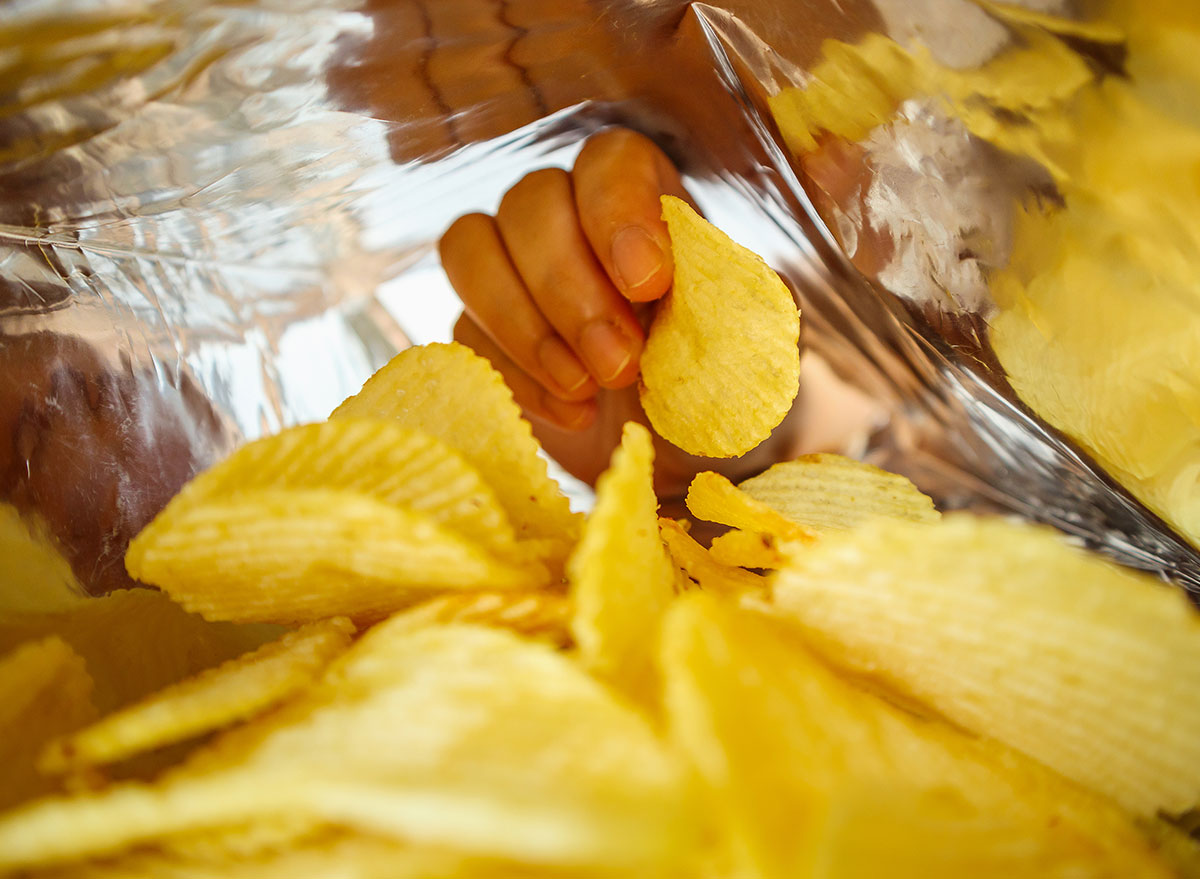
"In my opinion, diets high in saturated fat are the worst enemy for your brain," says Dr. Sandra El Hajj, writer at MyMSTeam. "They can promote cognitive decline as well as an aggravation of cognitive impairment for those who already have a mental condition. In addition, they trigger several complications in the brain that interferes with intracellular signaling and gene expression leading to anxiety, depressive behaviors, disrupted homeostasis as well as an elevation of inflammatory cytokines. All this bundle creates an unbalance in both mental and cognitive functions."
Don't let this nutrient throw off your health game. Check out 20 Healthy Fat Foods That Won't Make You Fat and find the perfect ingredient for you that packs in just the right amount of fat.
"eat" - Google News
September 14, 2021 at 06:13PM
https://ift.tt/3hw6xkN
The Worst Eating Habits for Your Brain, Say Experts | Eat This Not That - Eat This, Not That
"eat" - Google News
https://ift.tt/33WjFpI
https://ift.tt/2VWmZ3q
Bagikan Berita Ini














0 Response to "The Worst Eating Habits for Your Brain, Say Experts | Eat This Not That - Eat This, Not That"
Post a Comment